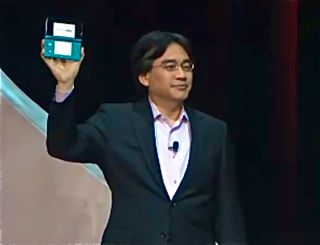
Nintendo's 3DS handheld console launches Feb 26 in Japan, internationally in March
Video game company Nintendo today announced launch plans and pricing for its forthcoming 3D handheld gaming unit, the 3DS.
The 3DS will hit retail in Japan on February 26, 2011, just before the end of Japan's fiscal year. It will cost ¥25,000 (approximately $300 USD) and will be launched in North America, Europe, and Australia in March. At a press conference in Chiba, Japan today, Nintendo president and CEO Satoru Iwata said further details will be announced by Nintendo's regional subsidiaries as the date approaches.
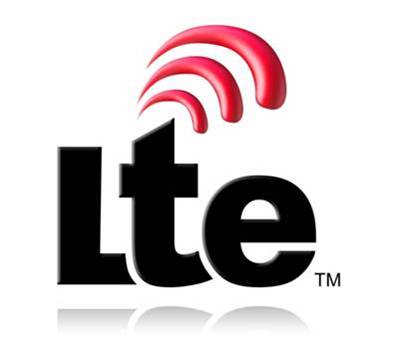
MetroPCS' second 4G LTE network launches in Texas
Just over one week ago, the first commercial LTE network in the United States launched in Las Vegas under regional carrier MetroPCS. Today, the carrier's second LTE deployment has launched in the Dallas/Fort Worth metropolitan area.
Like its Las Vegas LTE network, MetroPCS has monthly plans for $55 and $60, and its only LTE-compatible handset is the $299 Samsung Craft.

Roku set top boxes, TiVo DVRs get Hulu Plus this fall
Confirming recent rumors, streaming media hardware company Roku announced it has partnered with major Web-based content service Hulu to bring the premium Hulu Plus service to Roku set top boxes later this fall. A surprise announcement came from TiVO, however, which said TiVo Premiere users will have access to the service as well.
Last week, Roku unveiled its new line of set top boxes which really put the heat on competitors AppleTV, Boxee, and even GoogleTV. Roku effectively defined how an over-the-top streaming set top box should work with its first generation of Netflix streamers, which combined an extremely simple interface and an agreeable pricetag with an ever-growing library of content. With these new devices and content partnerships, it continues to lead the pack.

Why are 30 million Microsoft refugees headed to WordPress.com?
Microsoft has a long history of rewarding loyal partners.
"Partners?" you say. Yes, partners. Automattic, the company behind WordPress.com, uses Microsoft Azure services. Both companies revealed the partnership during Microsoft's November 2009 developer conference. Now I would never suggest any kind of quid pro quo arrangement, whereby Automattic agreed to use Azure (and take the PDC 2009 stage promoting the relationship), with the promise of getting Windows Live Spaces bloggers when the service later shut done. Others' tongues may wag, but not mine. I see a simple partnership, but a surprising one nevertheless. After all, WordPress' core software is open source.

AOL acquires TechCrunch sites: It's all about advertising
AOL announced Tuesday that it will be acquiring popular blog TechCrunch and all of its subsidiary sites, which includes MobileCruch, CrunchGear, TechCrunchIT, GreenTech, TechCrunchTV, and Crunchbase. The sites will be incorporated into AOL's Technology Network of publications.
AOL's Technology Network already includes the blogs Engadget, Switched, The Unofficial Apple Weblog (TUAW,) and DownloadSquad. The inclusion of TechCrunch and its related sites will make AOL the owner of two of the most popular tech blogs according to news aggregator Techmeme.

Sony Ericsson LiveView: Part Android Watch, Part Android 'Nano'
Sony Ericsson today announced a unique new accessory for Android, a Bluetooth-connected 1.3" screen called LiveView which can be used to control and interact with applications on your phone remotely.
Similar to the new iPod Nano, LiveView is a small square screen with a clip on the back. Unlike the Nano, however, the tiny 1.3" OLED display is not touch-enabled. Instead, the border of the screen acts as the touch pane, and the chassis has action buttons on it. It is not a standalone device, and must be paired with an Android 2.0+ smartphone (not necessarily just with the X10 series.) Once paired, it can then access dozens of applications.
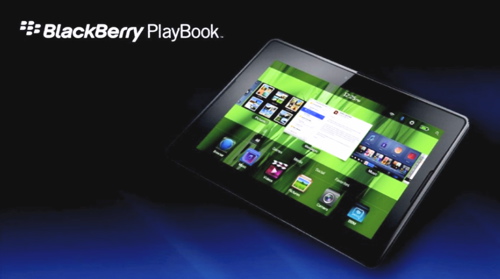
RIM unveils PlayBook, the long-awaited BlackBerry tablet
At Research in Motion's BlackBerry Developer Conference Devcon 2010, CEO Mike Lazardis unveiled the rumored BlackBerry tablet, which is going by the name PlayBook.
PlayBook has a 7-inch screen, 1GHz dual-core Cortex A9 processor, 1GB of RAM, Front (3 MP) and rear (5 MP) cameras, HMTL5 and Flash 10.1 with hardware acceleration, BES and BBM support, e-reader software, 1080p HD video; H.264, MPEG4, WMV with HDMI video output, as well as a totally revamped browser.

Windows Live Spaces shutting down, WordPress.com takes on users
Microsoft's blogging platform Windows Live Spaces is being decommissioned, and the users are being absorbed by WordPress.com, Microsoft and Automattic Inc. announced on Monday.
Beginning today, Windows Live Spaces users have the option to automatically migrate their entire blog over to WordPress.com when they sign up to create a new WordPress blog, otherwise their content will be removed from Windows Live Spaces when it shuts down in six months.

Android Market paid apps coming to more countries
Android Market, the app store built into most Android-powered mobile devices, is opening up its for-pay section in more countries, mobile analytics startup Distimo said today.
Currently, for pay applications in the Android Market are only available in Austria, France, Germany, Italy, Japan, Netherlands, Spain, UK, and US. Google recently alerted developers that support for more countries would be rolling out over the next few weeks, and according to Distimo, this has already begun to include Argentina, Belgium, Brazil, Finland, Hong Kong, Israel, Mexico, Poland, Romania, Russia, Slovakia, Singapore and South Africa; doubling the current total.
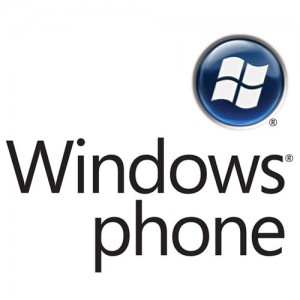
The bright spot in Microsoft's mobile OS disaster is...
...There's no place to go but up. But up doesn't have to be an arduous climb.
That's the attitude Microsoft product managers and marketers should adopt when launching Windows Phone 7. Microsoft has been humbled by upstarts Apple and Google; from that admission comes a fresh start. Windows Mobile has already lost the major battles of the mobile phone wars. Windows Phone cannot win if Microsoft plays by the rules set by its adversaries. The company must instead engage guerilla tactics, starting by leveraging off core strengths -- and Xbox gaming and mobile Office simply aren't enough. This kind of thinking might yet pull Microsoft out of the mobile OS gutter.

Sharp unveils Galapagos e-readers to support Japanese XMDF e-book, e-Manga format
Consumer electronics company Sharp on Monday announced its plans to launch an E-reader business in Japan under the name Galapagos which will include two Android-based E-book readers and a cloud-based bookstore with about 30,000 pieces of content.
The two Galapagos devices Sharp unveiled today are the 5.5 inch "mobile" model and the 10.8 inch "home" model, and they both come equipped with 802.11 b/g Wi-Fi. Outwardly, the devices are similar to a number of Android-based tablets that straddle the line between mobile tablet and e-reader, but internally, Sharp's products offer a major differentiator: support for the next generation XMDF e-book format.
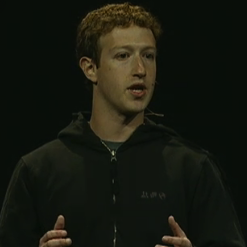
Zuckerberg's new org treats school districts as startups, invests $100M in Newark, NJ
Mark Zuckerberg, 26 year old Facebook CEO and 35th richest man in the United States today announced his new Startup: Education foundation, which focuses on rebuilding failing education systems one city at a time; treating them as if they were startup companies.
"School districts need more autonomy and clearer leadership so they can be managed more like startups than like government bureaucracies," Zuckerberg said today. "Many people are working on solving a single part of the problem broadly across the whole country. But recently, a few leaders are getting significant results by taking more of a startup approach and moving fast to do all these things at the same time in just one city. If they can prove that it's possible to turn around some of the most difficult urban districts in the country, then that will generate enough momentum to take the same approach and improve education everywhere."

Bye Bye Blockbuster
That Blockbuster filed for Chapter 11 bankruptcy protection isn't surprising. Holding out for so long is the real shocker. I expected today's filing at the beginning of 2009. This outcome was inevitable and may yet foreshadow future bankruptcy filings from other dinosaurs of the retail analog age, such as Borders Books.
But Blockbuster can't just blame digital delivery for its demise. Based on my own experience -- and surely that of others -- the movie rental retailer failed to adapt its business and technology practices to the Internet era. Blockbuster will need to do more than restructure its debt to survive Chapter 11. Executives will have to fundamentally restructure the business and most importantly the customer experience. Other armchair analyses surely will highlight the external problems, such as competition from digital content delivery and high-cost of maintaining retail stores. I'll focus on customer experience and expectations in the instant, connected era.

Facebook Goes Down
While outages have become an expected part of the Twitter experience, social network Facebook has a pretty good reputation for staying available. Beginning on Wednesday evening, and carrying over into Thursday, the site experienced rare outages that affected not only the main Facebook.com site, but also the elements of Facebook that are shared among other sites, such as the ubiquitous "Like" button.
In addition to API latency issues mentioned on the Facebook Platform site, a statement from Facebook on Thursday said:

FCC lays new rules for devices working in the 'white spaces' between TV stations
As expected, today's Federal Communications Commission (FCC) meeting introduced new rules about "white space" adoption that allows unlicensed wireless devices to operate in the spectrum between broadcast TV stations.
The legislation to free up these bits of spectrum for unlicensed usage has been in debate for more than three years, and the Second Memorandum Opinion and Order adopted today by the FCC addresses some technical and legal issues in their implementation.



